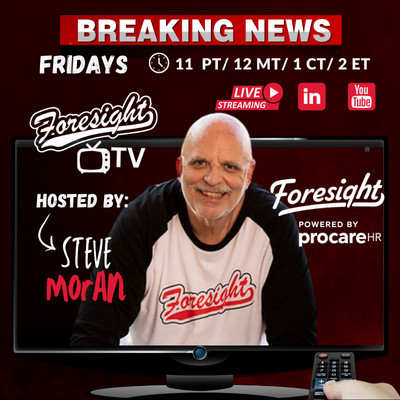By Jack Cumming
Recently, I stumbled across an ad for an open position in home care. The employer offered an $8,000 sign-on bonus. I figured they must be having difficulty finding someone to fill the position. I was curious. I scrolled down, and the first thing that popped up was a list of “minimum” requirements. Here, they are:
Minimum Qualifications:
- Bachelor’s degree in nursing with current state registration; or
- RN with a bachelor’s degree in health/human services; or
- RN with two years’ experience in home care
- Valid driver’s license and reliable transportation
I get it. There’s no point in screening a candidate who doesn’t meet rigid minimums if rigidity is in the corporate interest. The question is whether those minimums are so rigid that they screen out candidates who might be best suited to the role. After all, that $8,000 could go a long way toward helping someone who is otherwise qualified to gain the necessary state licensure.
Screened Out
Let’s say someone who graduated from an elite school like Harvard, Yale, Princeton, or their peers was the ideal person for the job. Those schools don’t offer undergraduate nursing degrees. Moreover, the person may have graduated with a humanities major but have just completed a master’s in nursing, leading to an RN designation. Now they are looking for their first job while pursuing licensure.
Such a person, who might have chosen to be a physician but who wants the more personal relationship with people that nursing provides, could be just the right fit to help take the hiring business to the next level. That $8,000 might be better spent helping them to get licensed and introducing them to the company than paying it out as a sign-on bonus.
What’s Needed?
With these thoughts in mind, I looked at the remaining aspects of this job posting. There was the usual listing of employment-related benefits, followed by the description below of the qualities the enterprise was seeking.
What you bring:
- The ability to make friends, influence people, and create fabulous first (and second and third) impressions
- Strong clinical skills and the desire to use them to provide evidence-based care in a best practice environment
- A passion to provide individualized care, ensuring each patient feels valued, respected, and invited to fully participate in their own care
- An understanding of the need for meticulous documentation and coding to ensure appropriate outcomes and to maximize reimbursement
- An appreciation that both quality of care and the patient experience are what engenders trust and drives loyalty
- A local wanderlust and desire to have a new work location every day!
These are all soft skills that a less rigid statement of “qualifications” might attract.
Recruit the Best
What struck me was that the enterprise thought people would want to apply. The alternative would be for the enterprise to recruit the best of the best. A business that waits for people to apply is leaving it to chance whether the best talent is interested. Often, the best candidate isn’t out looking.
A better approach than waiting for applicants might be to find people who are well-suited by temperament, personality, and intelligence for the position and then to give them the support needed to qualify. I don’t know why an employer would care what someone’s undergraduate college major was, as long as they mastered the knowledge needed for the position.
With HR, there’s no one-size-fits-all. It helps to have an interactive HR relationship that can creatively help the business to fulfill its mission.








Still, you need to keep in mind that certain licensures and certifications are required to meet federal and state regulations in each care sector of senior living. While the qualities you mention are certainly desirable, they are useless without the qualifying license. We can’t just hire them and spike the punch to magically get them licensed or certified after the fact. Surveyors are not going to give you a pass if you say, “Yes, I know the regs say this employee must be an RN to perform this job function, but we’re helping with her tuition in nursing school,” or “But she went to Vanderbilt, surely that counts for something.” Oops! Immediate Jeopardy tag; monetary fine; Reduced star rating! I would also imagine that a position carrying an $8k signing bonus should have some pretty hefty minimum standards that include a license or certification. Being smart and nice are just the baseline, at least where I live.
Of course, compliance is a big part of the HR function, and not every community has the resources to provide aspirants with a work home while they prepare to get licensed. Still, that $8,000 can go a long way, and Vanderbilt does an awesome job of educating people. I admire Vanderbilt for having given Amy Jill Levine a suitable teaching position when other universities were being more narrow-minded.
Stones River Manor is an exemplary community both in ministry and in financial stewardship. As for elite universities, this article is fun https://www.theatlantic.com/ideas/archive/2025/08/trump-university-presidents/683803/